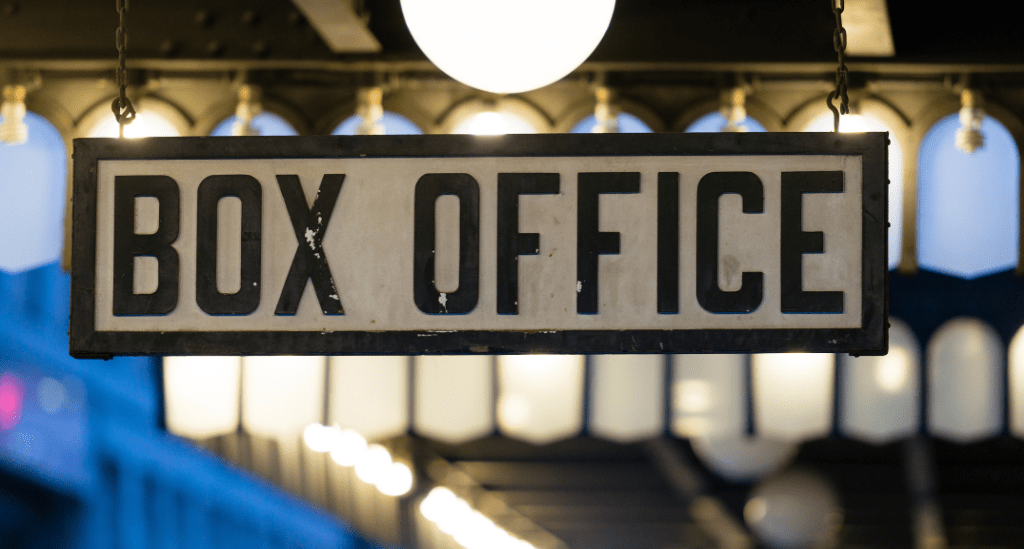The Shuttered Venue Operators Grant (SVOG) program is an essential component of the Economic Aid Act that the U.S. Congress passed in December 2020. SVOG is designed to help businesses (and non-profit organizations) that experienced financial hardships caused by the business closings and capacity limitations brought on by the COVID-19 pandemic, specifically those that serve live audiences. These include live-venue operators, promoters, theatrical producers, live performing-arts organizations, museum operators, movie-theater operators, talent representatives and others.
Although Pursuit isn’t administering SVOGs, many of our clients and other business owners are eligible for this important program. If your business is in this sector, funds are still available to help you reopen safely and regain financial strength. Qualified businesses can apply for grants from a pool of $16 billion.
More information and the online application are available directly through the SBA website, where you can find program details, as well as the application. Take a few minutes to explore this opportunity and talk to your accountant about whether it’s right for your business – and if so, apply today.
To help you get started, we’re pleased to provide the following information.
What is the Shuttered Venue Operators Grant program?
SVOG is an economic-relief program specifically targeted to businesses that provide live performances, as well as several types of businesses that directly support their work. This includes:
- Live venue operators, including theaters, concert halls and festival operators
- Promoters of live performances, such as concert promoters
- Theatrical producers
- Performing-arts organizations that offer live performances
- Museum operators
- Movie theater owners and operators
- Talent representatives
In addition, to be eligible:
- Qualified businesses must have been in operation as of February 29, 2020.
- Venues or promoters that received a Paycheck Protection Program (PPP) loan on or after December 27, 2020, will have the SVOG reduced by the PPP loan amount.
How much financial assistance can our business receive with SVOG?
Businesses that meet the SBA criteria can qualify for grants up to $10 million and factors include demonstrated revenue losses, as outlined on the SBA’s SVOG website. It’s also worth noting that $2 billion in grants has been set aside for smaller businesses with fewer than 50 employees.
Maximum grant amounts depend on when businesses were established:
- If your business was operating on January 1, 2019, you can receive up to 45% of your 2019 gross earned revenue, up to a maximum of $10 million.
- If you began operating after January 1, 2019, you can apply for your average monthly gross earned revenue for each full month you were in operation during 2019, multiplied by six, up to $10 million.
It’s important to note that if you receive a grant through SVOG, your business is no longer eligible to receive a Paycheck Protection Program (PPP) loan. However, if you’ve already applied for and received a PPP loan (or loans), you can still be eligible for SVOG and your PPP loans aren’t impacted. You can learn more about this rule on SBA’s webpage for cross-program eligibility. We also encourage you to talk to your accountant about which program may be best for your business’s needs.
How do I apply for SVOG?
The application process is currently open for SVOG. Please note that you must apply for SVOG directly with SBA, not with Pursuit, and all questions about the program and your application, if you apply, must also be directed to the SBA.
Before starting your application, you can review the available information about the SVOG program. You’ll also need a DUNS number to apply. If you don’t have one, you can register for a DUNS number here. You can get a head start on the application by gathering documents that demonstrate the number of employees you have, your monthly revenues and your gross revenue loss between 2019 and 2020.
What are eligible uses of SVOG funds?
There are many eligible uses of SVOG grant funds, as long as they apply to a qualified business (or non-profit). These include:
- Payroll costs
- Rent payments
- Utility payments
- Scheduled mortgage payments (not including prepayment of principal)
- Scheduled debt payments (not including prepayment of principal on any debt incurred in the ordinary course of business prior to February 15, 2020)
- Worker-protection expenditures, such as personal protective equipment (PPE)
- Payments to independent contractors (not to exceed $100,000 in annual compensation for an individual employee of an independent contractor)
- Other ordinary and necessary business expenses, including maintenance costs
- Administrative costs (including fees and licensing)
- State and local taxes and fees
- Operating leases in effect as of February 15, 2020
- Insurance payments
- Advertising, production transportation and capital expenditures related to producing a theatrical or live performing arts production (although this category may not be the primary use of funds)
Are SVOG funds taxable?
At the time of this update, funds allocated through the SVOG program that are used for eligible expenses are not taxable by the federal government. However, we can’t speak to any state-by-state decisions. That said, we strongly encourage all recipients of SVOG funds to speak with your accountant about any potential liabilities, including whether there may be state-tax implications.
Do SVOG funds have to be paid back?
As long as businesses use funds as promised and comply with any additional SBA documentation and requirements, these funds are considered grants and do not have to be repaid. if you don’t use all of the SVOG funds that your business received by deadline for your grant, then the unspent portion may be required to be returned to the U.S. Treasury Department. We anticipate that additional guidance about this point will be made available when the deadline is closer.
